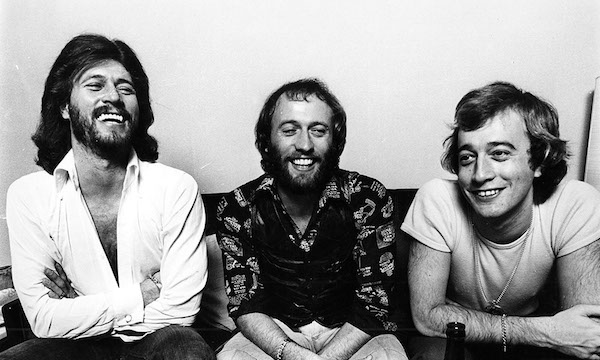I find that whenever I think of what the Bee Gees went through in the early 1980s, with the public in general suddenly expressing an intense dislike for their music, I feel a lot of sadness.
The Bee Gees as a songwriting partnership wrote some of the best songs in the history of pop. Maybe you were a fan of their music, and maybe not, but if you’re a student of songwriting, there can be no denying that they (and probably Barry Gibb in particular) were almost unparalleled in the songwriting business. They wrote excellent songs.
 Words and music need to act as partners in a song, but how do you make sure your melody is helping your lyric? That’s what Chapter 5 of “The Essential Secrets of Songwriting” deals with. Get that eBook as part of the 10-eBook Bundle, or purchase it separately.
Words and music need to act as partners in a song, but how do you make sure your melody is helping your lyric? That’s what Chapter 5 of “The Essential Secrets of Songwriting” deals with. Get that eBook as part of the 10-eBook Bundle, or purchase it separately.
What brought on the intense hatred of the Bee Gees in the late 70s – early 80s was not that they started writing bad songs. It was because the public was done with disco as a genre. And because the Bee Gees were seen as leaders — the public face, you might say — of that genre, they were required to take the punishment on behalf of everyone who wrote, performed and recorded disco music.
The “Bee Gees Free Weekends” that many radio stations promoted at that time must have stung. The Bee Gees spent much of the early to mid 80s writing songs for other singers and groups. Dionne Warwick, Dolly Parton and Kenny Rogers, Barbra Streisand… they all benefited from Barry, Maurice and Robin’s extraordinary songwriting prowess.
Ignoring Genre
The thing is, it wasn’t the songwriting that people disliked. It was disco music as a genre.
If you’re a true student of songwriting, you need to be able assess the quality of a song as something that exists outside its genre. You need to be able to ignore genre, and look at a song’s structure in order to learn from it.
The best songwriters out there can do that. If you listen to or read interviews by the best — Paul McCartney, Paul Simon, Bruce Springsteen, Joni Mitchell — you’ll find that they often talk about music that isn’t even in their own genre of choice.
They’re able to push genre aside and look at the basic structure of a song and find a way to deepen their own pool of songwriting ideas. And in so doing, they often gain a more profound appreciation for genres that they don’t usually listen to.
When it comes down to it, genre is simply the clothes that we put on a song when we perform and record it. The skeleton of the song needs to be strong and in place before you even consider what genre will do to it.
If in your daily listening you’re only focusing on the songs for which you like the clothes, you’re missing out on a huge catalogue of music that can be taking your songwriting to its next level.
 Written by Gary Ewer. Follow Gary on Twitter.
Written by Gary Ewer. Follow Gary on Twitter.
 “Hooks and Riffs: How They Grab Attention, Make Songs Memorable, and Build Your Fan Base” shows you how a good hook can make the difference between songwriting success and failure. With great examples from pop music history.
“Hooks and Riffs: How They Grab Attention, Make Songs Memorable, and Build Your Fan Base” shows you how a good hook can make the difference between songwriting success and failure. With great examples from pop music history.











What did Hank Williams and Black Sabbath have in common? They both knew structure and good phrasing! If you can write both country and metal songs, you are a master haha.
The Beatles – influences in early rock ‘n roll, rockabilly, blues, wartime dance hall, folk, Indian raga, orchestral, barock, etc.
Joni Mitchell – folk, pop, jazz, blues
Bob Dylan – folk, rock, blues, country, pop
A songwriter cannot hope to learn and develop masterful skills if they only decide to focus on extremely specific genres such “progressive death metal with a touch of brutal jazz”.